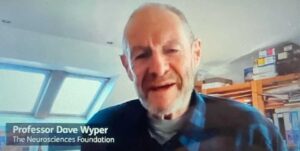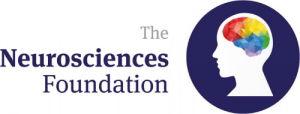
We would like to announce that we will support two vital research projects aimed at tackling Motor Neurone Disease (MND). The total being funded is £20,000. Both studies will be carried out in Scotland, highlighting the strength of medical research north of the border.
The Foundation fosters this expertise by giving support to early-stage research, often carried out by PhD or post-doctoral researchers. If results are promising, larger scale charities and funders can step in to take the research to the next level.
In its first-ever grant to the University of St Andrews, the Neurosciences Foundation will support a project looking at what happens to synapses in degenerative diseases such as MND. Synapses regulate the transmission of signals between brain nerve cells.
Dr Matthew Broadhead at St Andrews School of Psychology & Neuroscience will lead this project. It’s hoped it will broaden understanding of how and why synapses start to break down when MND and other illnesses first strike. The work might also lead to therapies that could protect affected synapses.
The Chair of the Foundation, Dr Sarah Deans, said: “We are delighted to be able to fund this project and for the first time to partner with the University of St Andrews.
“We have supported a wide spread of research including glioblastoma (brain tumours), Parkinson’s Disease and research into the treatment of brain injuries. It is particularly pleasing now to be able to join the battle against Motor Neurone Disease which is such a cruel condition.”
The other research boost will be delivered by Dr Zsofia Laszlo’s team at the Division of Cellular and Systems Medicine in the School of Medicine at the University of Dundee. Once again it will focus on brain synapses. These connections are critical for the brain to control our everyday life, thoughts, feelings, and movements. However, in brain diseases these synapses can break down, causing the brain to lose control, resulting in diseases such as dementia and Motor Neurone Disease.
Dr Laszlo’s research already focuses on synapses collected from MND donors and uses a technology called proteomics to identify the parts that make up a synapse and see how these have changed with MND. In this project the team will study synapses in the visual cortex. This region is relatively unaffected in MND and so might show up early changes. The team will make a freely available online tool for other researchers to use the data that is gathered.
The two projects complement each other nicely, and hopefully these studies will also boost the transmission of signals between these two excellent research teams.
Professor Dave Wyper, a Trustee of the Neurosciences Foundation, and Dr Matthew Broadhead, of St Andrews School of Psychology and Neuroscience, were both interviewd by STV North’s 6pm News programme about these projects.
